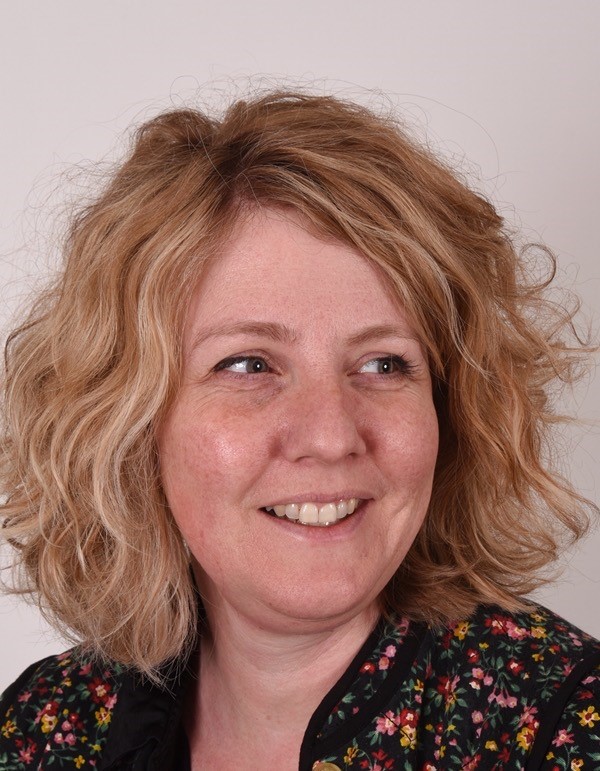Bernice Horst: "It's an investment that will ultimately bring you so much"
- Education in Art
"A child feels uncomfortable, feels good about themselves or has lost a lot of weight in a short period of time: as a theatre teacher you see the whole picture and you talk about things that are not addressed in any other course. That's what makes this job unique." Bernice Horst (42) had been working at a secondary school for 18 years when she increasingly felt the need for depth and enrichment. After a brief search, she found that the Master of Education in Arts in Zwolle was exactly what she needed.

You're doing your job, but somehow you know that there's more, responds Bernice when asked why she opted to go back to school. "It's nice to get suggestions, like: read this book or go and have a look there. I was keen to learn more and gain other perspectives." Along with her classmates, she went through phases of uncertainty, deadlines and, above all, a lot of enthusiasm. Because, as Bernice explains, opting for a master's course is a deliberate choice. "You cannot compare it to a 16-year-old who has just finished secondary school and is starting further education. You know upfront that this is an investment that will take up a lot of time, but that will ultimately bring you so much more. That's the mindset I had going in. We all wanted to make the most of it.” And we did, says Bernice. "This master's course taught me exactly what I needed."
Trained to do research
What was it what she needed? Bernice: "Mainly, we were introduced to a broader context of the world of art and education. To enlarge our own frame of reference, we studied various educational innovators and philosophers, among others. I enjoyed that a lot." The master's course requires an inquisitive attitude, Bernice explains. Something she did not have a lot of experience with herself. "That was a challenge in itself for me. But the good thing is that you're trained to do research in such a way that you can continue to do so in the future. It doesn't stop here." Furthermore, students are challenged to write well, using the right sources and thinking strategies, she continues. "You have to submit materials at a certain cognitive level. That was tough sometimes, but at the same time very educational."

Daring to not know something
The master's has changed how she teaches. More confident, more open and with a bit more baggage. 'My style of teaching is less traditional and I now seek cooperation and interaction with my students more often,' Bernice explains. 'This also applies to my interactions with colleagues. I have developed a more investigative attitude and tend to think outside the box more often. I dare to do that now, and I also dare to not know something more often.'
I tend to want to do away with the stuffiness of things, and that also applies to traditional education"
Because they, as classmates, came from roughly the same sector and were all in the same boat, they quickly developed a close bond. Bernice: "Everyone knows what everyone else is doing, and we tried to encourage, motivate and inspire each other all the time. You get to know each other well, and we all came with our own network, which can be very useful." What she sometimes found difficult was that she only had lessons one day a week. Not a lot, Bernice thinks. But it couldn't have been otherwise: "More days in school wouldn't fit into my life," she says. "Sometimes it was tough that everything had to be done in one day. But on the other hand: it did help me to take a step back and let the material sink in. I think it works like that with every part-time course."
More creative instructional formats
She feels stronger, makes more conscious choices and a world has opened up for her that she didn't know existed. 'I take all these insights with me into my professional practice.' Does she still have ambitions in this area after 18 years? Bernice: 'I tend to want to do away with the stuffiness of things, and that also applies to traditional education. In my work I find that some lecturers find it difficult to teach in a fun and varied way. I do feel the ambition in a sense to show them that things can be a bit more creative. For you have to remember that students sometimes have to sit and listen to someone for seven hours at a time.'


